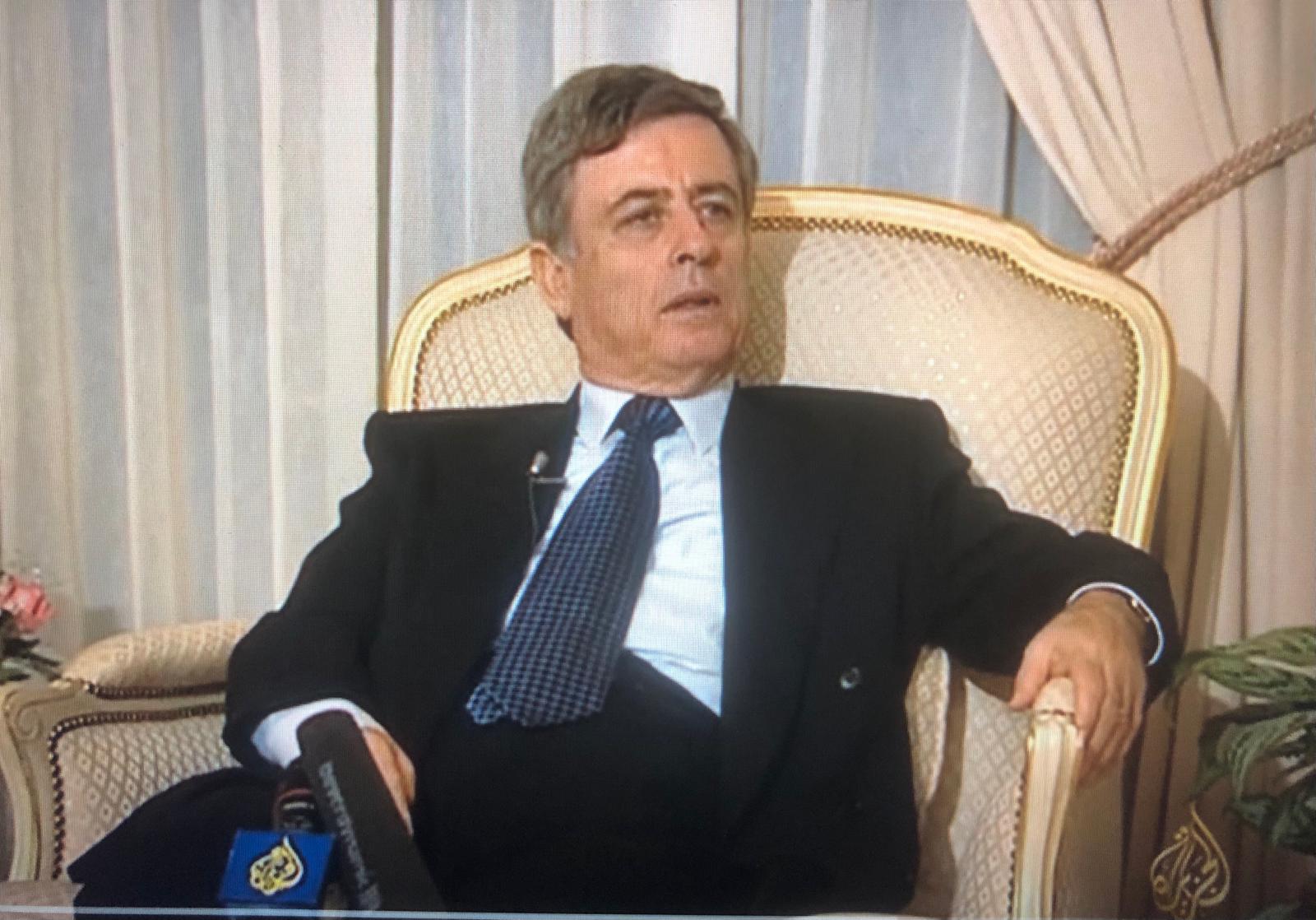Q: In the event that peace talks yield results and an agreement is reached between Syria and Israel, what will the new relationship between Damascus and Tel Aviv look like?
A: We are committed to working towards achieving a just and comprehensive peace in the region based on UN Security Council Resolutions 242 and 338. The content of these resolutions is what defines the nature of peace, relations, and other issues. We are committed to all the requirements of the Security Council resolutions, but beyond these requirements is a different matter.
Q: Let’s assume that peace talks do not lead to a resolution and Israel does not implement international legitimacy resolutions in general. What evidence is there, and what options are available for Syria?
A: The talks are part of a comprehensive process aimed at achieving peace and realizing Israeli withdrawal from the occupied Arab territories and restoring the national rights of the Palestinian people. If this direction fails, it requires us to work to provide all the conditions that allow us to regain our rights in the land, whether it’s Syrian, Palestinian, Lebanese, or Jordanian land. We will work, as I mentioned, on Syrian, Arab, and international levels to create the conditions for regaining our rights. This conflict cannot stop as long as a single inch of land is occupied and as long as the Palestinian people suffer from injustice and occupation.
Q: Is the option of war still on the table?
A: We are now discussing peace.
Q: Will Syria continue to boycott multi-party negotiations despite the consensus of the participating countries, especially regarding economic development linked to progress in both bilateral and multilateral aspects?
A: We do not see any logic in multilateral negotiations. How can relations between regional countries be discussed while aggression persists and occupation remains? How can Syria discuss regional problems like water, environment, and others when its lands are occupied? Multilateral negotiations are a gift to Israel, a weakening of the Arab position in the peace process, and a reward to Israel. It’s natural for us to take this stance. We do not want to jump to conclusions before addressing the fundamental prerequisites, which is withdrawal. If withdrawal doesn’t happen, then other matters cannot be discussed.
Q: Withdrawal from the Golan or on the Golan?
A: Withdrawal from the Golan and from every inch of the Golan and every inch of the occupied Arab territories.
Q: Let’s move on to the discussion about relations between Damascus and the Palestine Liberation Organization (PLO). Do you agree with the description of relations between Syria and the PLO leadership as “saw-like teeth”? Are the reasons behind the PLO’s concern about a potential agreement between Syria and Israel at the expense of Palestinians and Syria’s reservations about their negotiation approach with Israelis valid?
A: Relations between Syria and the PLO leadership are normal. As is known, we neither want nor will interfere in the organization’s affairs, now or in the future. They make their decisions and bear the responsibility for these decisions in front of the Palestinian people. As for concerns expressed by one element or another within the PLO about Syria’s stance, I personally don’t believe that any Palestinian who is even remotely connected to the Palestinian cause can doubt Syria’s position.
Q: Regarding the Palestinian-Israeli track in the peace talks in Washington, there have been several statements recently that suggest you find some flaws in this track. Can you comment?
A: No statement has been made. Regarding the Palestinian negotiating track, naturally, there is an Arab agreement on the nature of coordination and information exchange. The Palestinian delegation is engaged in a significant battle with the Israeli side, and the situation is not easy. We have not made any statements or criticisms whatsoever. In any case, Syria is keen on the rights of the Palestinian people and its own rights. We are parts of one nation, and no one can point out what Syria should or should not do for its national obligations. Syria understands these obligations and its responsibilities. Those who want to make suggestions should take the right path to serve their cause.



